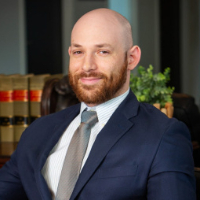Woods Cross Criminal Lawyer, Utah
Sponsored Law Firm
-
 x
x

Click For More Info:
-
Melton Law
5955 South Redwood Road Suite 103 Taylorsville, UT 84123» view mapCriminal Defense and Accident & Injury Legal Expertise You Can Rely On
Melton Law is dedicated to providing competent and great representation to our clients. We will be there to help you and answer any questions you have every step of the way.
800-952-9770
Joseph Earl Rupp
✓ VERIFIEDJoseph is a criminal defense attorney and retired U.S. Marine Corps officer. He has been defending the Constitution since 1987. After a 27-year career... (more)
Michael K. Hepworth
✓ VERIFIEDMichael is the Managing Partner of Legal. He is also the Principal Broker and President of Security Real Estate, LLC located in Bountiful, Utah, and V... (more)
Logan Eric Collins
Logan Collins is a criminal defense attorney in Bountiful, UT. He concentrates his practice on DUI, drug crimes, violent crimes and more. Logan is a m... (more)
Brandon A. Bourg
✓ VERIFIEDBrandon has experience successfully advocating for a vast array of clients in both criminal and civil cases. Brandon takes a dynamic and client-orient... (more)
Joseph Henry Jardine
✓ VERIFIEDAfter receiving his B.A. from Brigham Young University, Joseph Jardine studied at the University of Idahos College of Law, graduating with his juris d... (more)
John K Johnson
✓ VERIFIEDJohn K Johnson is a practicing lawyer in the state of Utah handling criminal defense matters.
FREE CONSULTATION
CONTACTFREE CONSULTATION
CONTACT William Melton Taylorsville, UT
William Melton Taylorsville, UT Practice AreasExpertise
Practice AreasExpertise







